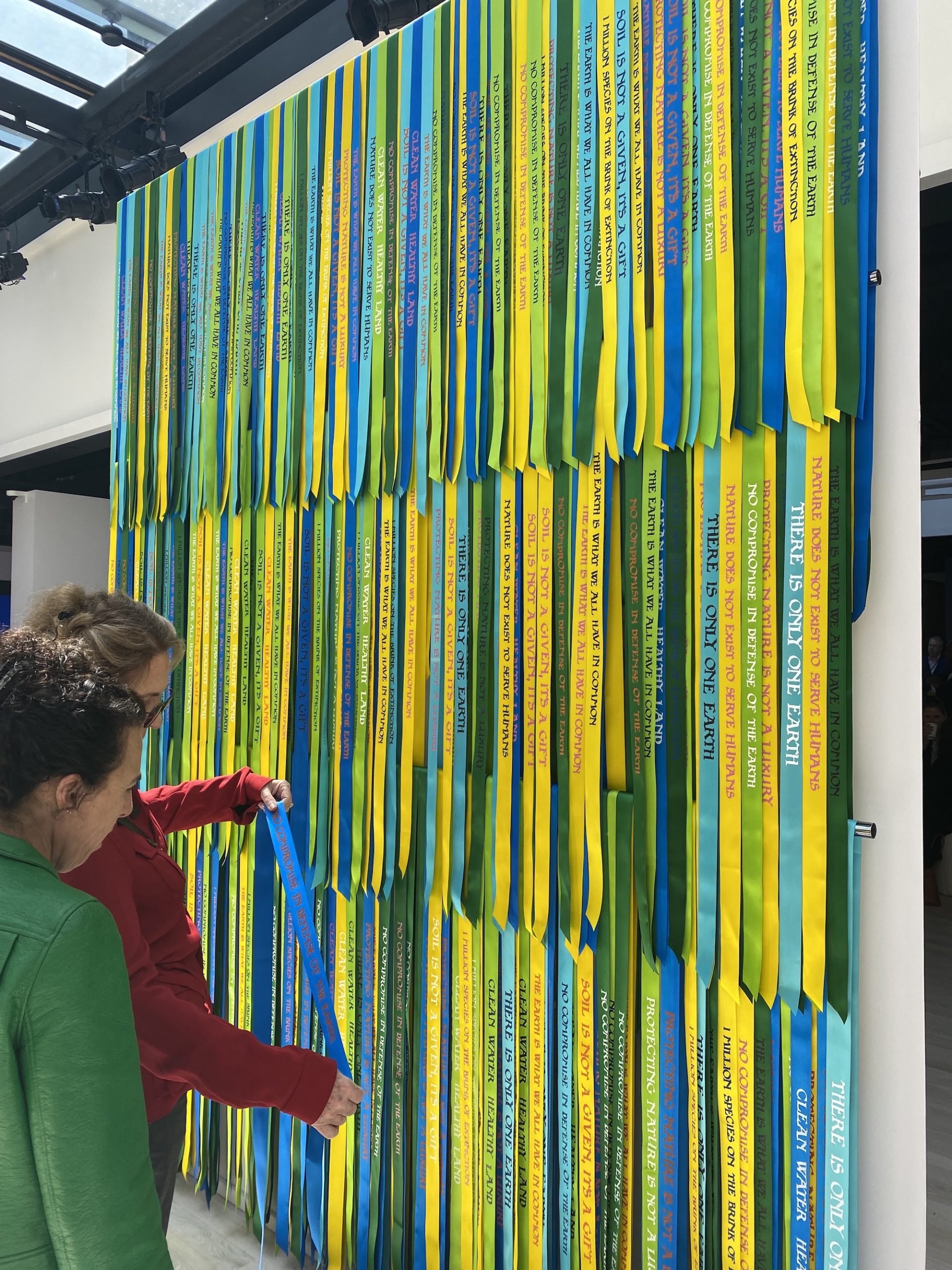
Anyone familiar with artist Andrea Bowers, whose work is inexorably intertwined with her activism on climate change, abortion, and other issues, might be surprised to find her art situated in a lounge that champagne producer Ruinart has at the current Frieze New York. (I was certainly caught off guard.) However, during Frieze’s VIP preview on Wednesday, I sat down with Bowers (with, yes, a glass of Ruinart champagne), viewed the work, and she explained.
The booth’s elaborate centerpiece, Chandeliers of Interconnectedness, is a steel sculpture resembling tree branches that are adorned with neon leaves and recycled glass. It hangs from the ceiling, and pays homage to one of Bowers’s heroes, eco-feminist pioneer Françoise d’Eaubonne by incorporating words and phrases from her poems in both English and French.
Artist Andrea Bowers working on elements of Chandelier of Interconnectedness for Ruinart at Frieze New York. ©Anais and Dax. Image courtesy the artist and Ruinart.
Another installation, Political Ribbons, also calls attention to the climate crisis. Visitors are invited to select a long, colorful ribbon with a slogan like “PLANET OVER PROFIT” from an eye-catching display and drape it around their neck—an impromptu accessory for their outfit. (I saw many fairgoers taking them.)
Andrea Bowers with the custom-made ribbons currently on view in the Ruinart Lounge at Frieze New York.
When the champagne producer asked Bowers to collaborate, she that said that her response was, “I don’t want to do it unless I trust it.”
Bowers made two visits to Ruinart’s vineyard in the Champagne region of France, as part of a group of artists involved in a decade-old initiative titled “Conversations With Nature.”
“We all went to the vineyards,” she said. “They’re a small organization completely committed to biodiversity. They’re not using pesticides, and a huge section of their vineyard is dedicated to scientific research and collection of data to see if they can both deal with climate change and figure out environmentally friendly ways to grow grapes.”
To create her chandelier, Bowers drew on her experience in activism and her commitment to protecting forests. Its neon leaves were made in collaboration with Lite Brite Neon, and the recycled glass was made with Judson Studios, the oldest family-owned stained glass company in the U.S. The work will eventually be permanently installed at Ruinart’s facilities. Bowers, who is based in Los Angeles, will return to France to oversee the installation.
Artist Andrea Bowers on a visit to the Ruinart vineyard in the Champagne region of France
Bowers conceded that’s she’s not typically “someone to work with a luxury brand,” explaining that, “to be honest, I’m interested in institutional critique.”
But she noted that Ruinart is owned by the luxury giant LVMH, and said that she hopes that the eco-conscious efforts of the relatively small brand will inspire other firms that are part of the conglomerate to follow suit.
Ruinart is “trying to create sustainability for themselves and also throughout the whole area of Champagne,” Bowers said. “They’re working with other farmers to create biodiversity and make [production] sustainable.” They also ship by boat, make sure everything is sustainable, and buy their supplies locally, she said.
“If you really want to get into a system of power and create change this is a way to do it,” Bowers said. “They are willing to go to the necessary lengths.”